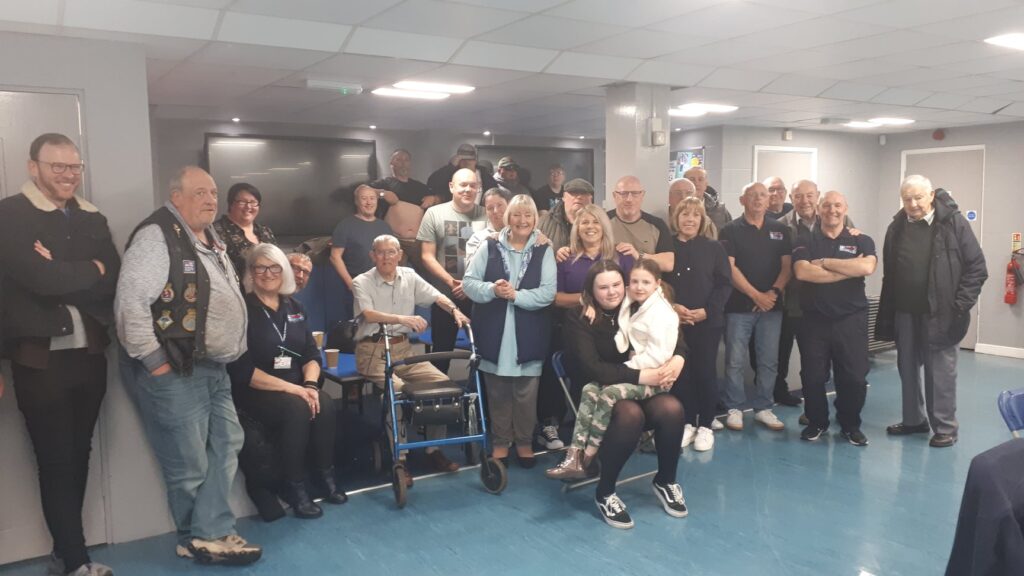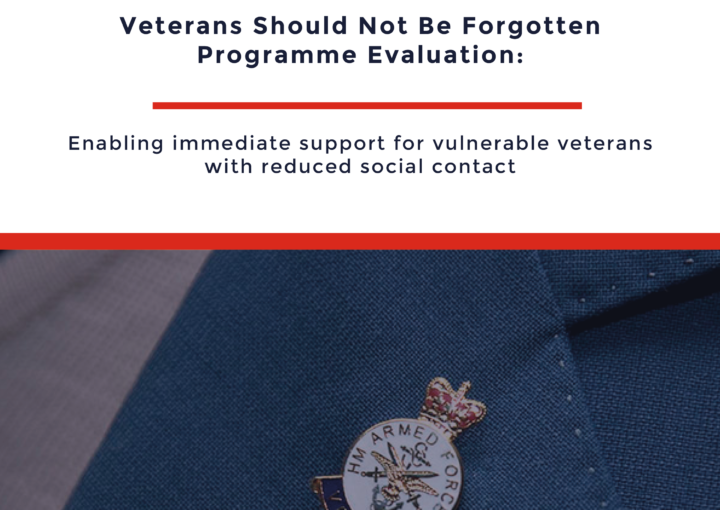June 24, 2022
The Armed Forces Covenant Fund has supported hundreds of projects supporting veterans; particularly through the Veterans Mental Health and Wellbeing Fund. With funding from HM Treasury, since it began in 2019, the Positive Pathways programme has awarded funding to more than 200 veterans’ projects across the UK.
One of these projects is Veterans in Sefton; who received a grant of £35,000 from the Armed Forces Covenant Fund Trust’s Positive Pathways programme. The charity, based in Bootle, Merseyside, supports veterans and their families in the local community with services and activities ranging from simple advice and social activities to counselling, housing and employment support.
The organisation is led by veterans. The Positive Pathways grant has enabled Veterans in Sefton to employ a dedicated full time Project Manager that has allowed the project to reach and engage with many more veterans than before, and to offer them an improved and enhanced experience. Phil Sorrell is a former Royal Marine, who served for more than 24 years in a range of environments around the world. As Project Manager, Phil provides direct support and training to volunteers as well as co-ordinating activities such as mountain club excursions and adventurous training.
The project has gone from strength to strength; and you can find out more about their work
Veterans providing support to other veterans is a consistent theme within projects supported by the Trust; particularly through the Veterans Mental Health and Wellbeing Fund.
During the Covid pandemic; life was very challenging particularly for older veterans. The Trust awarded £2.4M to 120 local projects which helped keep veterans connected and enabling access to support at this difficult time. Projects included home deliveries of essential items, home deliveries of items to improve wellbeing, social contact through telephone or digital platforms and garden and maintenance services.
Through an evaluation of the programme, the Trust has explored the impact of this funding, talking with grant holders to find out more about their experiences and exploring the key themes that emerged from the programme, which were:
- veterans staying connected
- veterans learning new skills
- veterans supporting veterans
- veterans in partnership.
There were almost 30,000 direct beneficiaries from this funding, with 47% of the funding benefiting those veterans aged 65 and over.
Keeping in touch online
One recipient, the Veterans’ Support Association, received £5,000 for hobby packs for veterans to complete at home during lockdown.
The group set up a closed Facebook group for veterans to communicate with each other when they worked on their hobby packs. John from the Veterans’ Association told us: “Sometimes the posts just exploded. One guy would post a picture of his model and ask the others for the best glue to use, or something, and suddenly there would be hundreds of comments.
“We spent £800 per month, that works out at about £20 per veteran that asked us for help. It’s not a huge amount of money to keep a life intact and perhaps save a family.”
Programme Evaluations
Veterans and carers
Evaluation
Report
Aug 2021
The Veterans Should Not Be Forgotten programme awarded 120 grants to organisations across the UK, totalling £2,394,698.
This programme evaluation explores the impact of the Veterans Should Not Be Forgotten programme on vulnerable veterans with reduced social contact.

